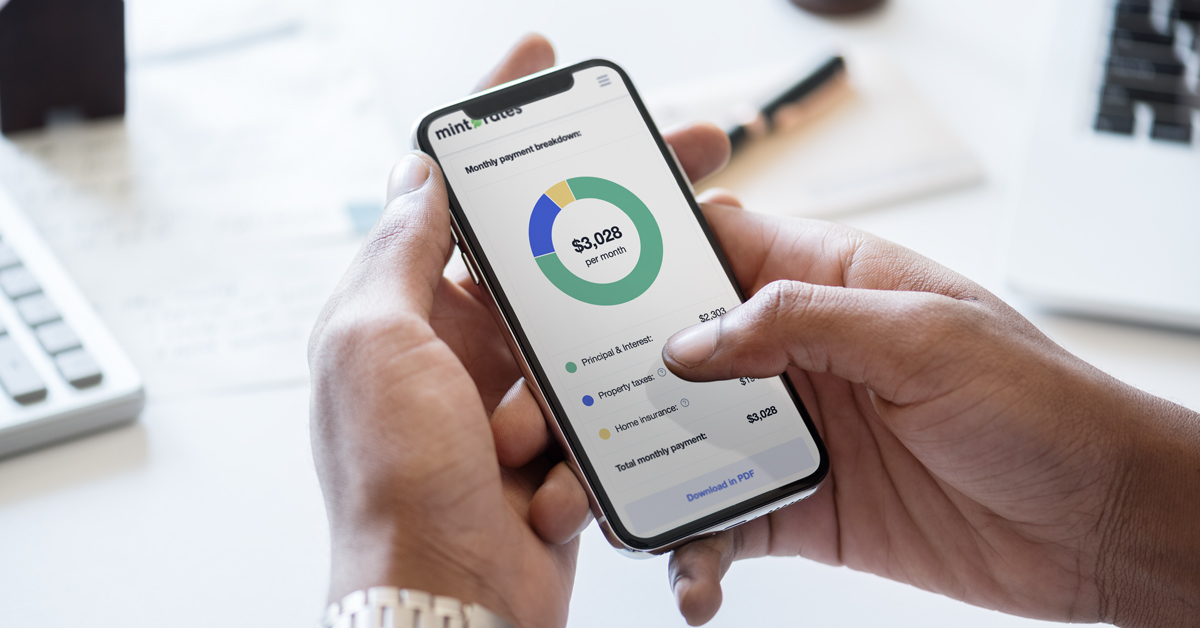
Purchasing a home is one of life’s most significant financial decisions, and choosing the right mortgage is a critical aspect of that process. Among the various mortgage options available, the 30-year fixed-rate home loan has remained a steadfast choice for decades, providing borrowers with stability, predictability, and a sense of security. In this article, we will delve into the features and advantages of the 30-year fixed-rate home loan, shedding light on why it has maintained its popularity over the years.
30-Year Fixed-Rate basics
The 30-year fixed-rate home loan is a mortgage product that offers borrowers a fixed interest rate for the entire duration of the loan, which is typically 30 years. This means that the monthly mortgage payments remain consistent throughout the life of the loan, providing borrowers with a sense of financial predictability and stability. This stands in contrast to adjustable-rate mortgages (ARMs), where the interest rate may change periodically, leading to fluctuations in monthly payments.
Explore current 30-year Fixed Mortgage Rates
Exploring Home Loan Products with 30-Year Fixed Mortgage Terms
When embarking on the journey to homeownership, one of the most critical decisions you’ll make is choosing the right home loan product. Among the array of options available, those with a 30-year fixed mortgage term stand out as a popular choice. This term offers stability, predictability, and affordability over the long haul. Let’s delve into some of the notable home loan products that feature a 30-year fixed mortgage term:
FHA 30-Year Fixed Mortgage: The Federal Housing Administration (FHA) offers a 30-year fixed mortgage option designed to assist first-time homebuyers and those with limited credit history. Backed by the government, FHA loans generally feature more lenient qualification criteria, making homeownership accessible to a broader range of individuals. With competitive interest rates and down payments as low as 3.5%, FHA 30-year fixed mortgages provide financial security and flexibility for those entering the housing market.
Calculate Monthly Payment for FHA 30-year Fixed Mortgage
VA 30-Year Fixed Mortgage: Exclusive to eligible veterans, active-duty service members, and certain members of the National Guard and Reserves, the VA 30-year fixed mortgage is guaranteed by the Department of Veterans Affairs. This loan product boasts benefits like zero down payment requirements, no private mortgage insurance (PMI), and competitive interest rates. For those who have served our country, the VA loan offers a pathway to homeownership with long-term stability.
Calculate Monthly Payment for VA 30-year Fixed Mortgage
Conventional 30-Year Fixed Mortgage: Conventional home loans are those not backed by any government agency. A conventional 30-year fixed mortgage is a popular choice for borrowers with strong credit scores and stable financial backgrounds. Lenders typically offer competitive interest rates, and a 30-year fixed term provides the advantage of predictable monthly payments. While a 20% down payment is ideal to avoid PMI, there are options for lower down payments.
Calculate Monthly Payment for Conventional 30-year Fixed Mortgage Rates
Jumbo 30-Year Fixed Mortgage: For those looking to purchase high-value properties that exceed the conforming loan limits set by government-sponsored enterprises (GSEs) like Fannie Mae and Freddie Mac, the jumbo 30-year fixed mortgage is the solution. While jumbo loans involve larger loan amounts, they still offer the benefits of a 30-year fixed term, providing borrowers with stability and consistent payments over time.
Calculate Monthly Payment for Jumbo 30-year Fixed Mortgage Rates
USDA 30-Year Fixed Mortgage: The United States Department of Agriculture (USDA) offers a 30-year fixed mortgage program aimed at individuals purchasing homes in designated rural areas. These loans often feature competitive interest rates and require no down payment, making homeownership more attainable for those looking to settle in rural communities.
30-year fixed Loan Products Comparison
| Loan Product | FHA 30-Year Fixed Mortgage | VA 30-Year Fixed Mortgage | Conventional 30-Year Fixed Mortgage | Jumbo 30-Year Fixed Mortgage | USDA 30-Year Fixed Mortgage |
|---|---|---|---|---|---|
| Minimum Down Payment | 3.5% | 0% | 3% – 20% | Varies | 0-3.5% |
| Mortgage Insurance | MIP | VA Funding Fee | PMI | Varies | Annual Fee |
| Credit Score Requirement | 500+ | 620+ | 620+ | Varies | 640+ |
| Property Type | 1-4 Units | 1-4 Units | Any | Any | Eligible |
| Income Limits | Varies | None | None | Varies | 115% AMI |
| Property Eligibility | Must Meet Req. | Req. Area | None | Req. Area | Req. Area |
| Loan Limits | Max per County | Max per County | Conforming | Varies | Req. Area |
| Loan Term Options | 30 Years | 30 Years | 30 Years | 30 Years | 30 Years |
| Refinance Options | Yes | Yes | Yes | Yes | No |
Comparison: 30-Year Fixed vs 15-Year Fixed
| Feature | 30-Year Fixed | 15-Year Fixed |
|---|---|---|
| Loan Term | 30 Years | 15 Years |
| Monthly Payment | Lower (initially) | Higher (initially) |
| Interest Rate | Slightly Higher | Slightly Lower |
| Total Interest Paid | Higher | Lower |
| Equity Buildup | Slower | Faster |
| Payoff Time | Longer | Shorter |
| Financial Flexibility | Higher (lower monthly payments) | Lower (higher monthly payments) |
| Interest Savings | Less over the life of the loan | More over the life of the loan |
| Ideal For | Borrowers who prioritize lower monthly payments | Borrowers who want to pay off their loan faster |
| Long-Term Financial Planning | Offers more flexibility for other investments | Provides faster debt-free homeownership |
Pros and Cons of a 30-Year Fixed-Rate Home Loan
Choosing the right mortgage is a crucial decision when it comes to buying a home. Among the various options available, the 30-year fixed-rate home loan stands out as a popular choice. However, like any financial decision, it comes with its own set of advantages and disadvantages. Let’s explore the pros and cons of a 30-year fixed-rate home loan to help you make an informed decision.
Pros:
- Stable Monthly Payments: One of the most significant advantages of a 30-year fixed-rate home loan is the stability it offers. Your monthly mortgage payments remain constant throughout the life of the loan, providing a sense of predictability and making it easier to budget for your housing costs.
- Long-Term Affordability: The extended 30-year term results in lower monthly payments compared to shorter-term loans. This increased affordability can make homeownership more accessible, allowing you to manage your finances more comfortably.
- Financial Planning: With consistent monthly payments, you can better plan your long-term finances. This stability can be especially valuable during economic uncertainties or life changes, ensuring that your housing costs remain steady.
- Protection Against Rising Interest Rates: Since your interest rate is locked in for the entire loan term, you are shielded from potential future interest rate increases. This can be particularly advantageous if interest rates rise significantly over the years.
- Flexibility for Other Investments: Lower monthly payments can free up funds for other investments, savings, or expenses. This flexibility allows you to allocate your financial resources to other important goals.
- Inflation Hedge: Over time, inflation can erode the purchasing power of money. However, your fixed-mortgage payments become relatively smaller in real terms as inflation increases, providing a hedge against rising costs.
Cons:
- Higher Total Interest Payments: While lower monthly payments are an advantage, the extended loan term means you’ll end up paying more in total interest over the life of the loan compared to shorter-term options.
- Higher Initial Interest Rates: 30-year fixed-rate loans may have slightly higher initial interest rates compared to the starting rates of adjustable-rate mortgages (ARMs), which can result in higher initial monthly payments.
- Slower Equity Build-Up: The extended loan term means it takes longer to build equity in your home compared to shorter-term loans. This could impact your ability to access the equity for other financial needs.
- Opportunity Cost: The additional interest paid over 30 years could potentially be invested elsewhere for potentially higher returns. Choosing a shorter-term loan might allow you to build equity and pay less interest.
- Qualification Criteria: Meeting the requirements for a 30-year fixed-rate loan, including credit score and income criteria, might be more challenging for some borrowers.
- Limited Rate Reduction: If interest rates significantly decrease in the future, you might miss out on the opportunity to refinance to a lower rate without extending your loan term.
Frequently Asked Questions (FAQ) About 30-Year Fixed-Rate Home Loans
What is a 30-year fixed-rate home loan?
A 30-year fixed-rate home loan is a mortgage where the interest rate remains constant for the entire 30-year term, resulting in stable monthly payments.
How does a 30-year fixed-rate loan differ from an adjustable-rate mortgage (ARM)?
Unlike an ARM, where the interest rate may change over time, a 30-year fixed-rate loan offers consistent interest and monthly payments throughout its duration.
Why would someone choose a 30-year fixed-rate loan over a shorter-term option?
A 30-year term typically offers lower monthly payments compared to shorter-term loans, making homeownership more affordable for many borrowers.
What are the benefits of a fixed interest rate?
A fixed interest rate provides financial predictability and protection against interest rate fluctuations, ensuring that monthly payments remain steady.
Can I pay off a 30-year fixed-rate loan early?
Yes, you can make extra payments to pay off the loan earlier. However, check with your lender to ensure there are no prepayment penalties.
Is the interest rate for a 30-year fixed-rate loan higher than other loan types?
The interest rate for a 30-year fixed-rate loan may be slightly higher than initial rates for some adjustable-rate mortgages, but it offers long-term stability.
How does inflation impact a 30-year fixed-rate loan?
Inflation can work in favor of borrowers with fixed-rate loans, as their monthly payments become more affordable over time in real terms.
Can I refinance a 30-year fixed-rate loan?
Yes, you can refinance a 30-year fixed-rate loan to potentially lower your interest rate or adjust your loan term, depending on market conditions.
Are there any drawbacks to a 30-year fixed-rate loan?
One potential drawback is that you might pay more in interest over the life of the loan compared to shorter-term options.
Who is a 30-year fixed-rate loan suitable for?
It’s suitable for those seeking long-term stability, predictable monthly payments, and the ability to budget effectively for homeownership.
Can I get a 30-year fixed-rate loan for an investment property?
Yes, 30-year fixed-rate loans are available for both primary residences and some investment properties.
How does my credit score affect my eligibility for a 30-year fixed-rate loan?
A higher credit score generally improves your chances of qualifying for a competitive interest rate on a 30-year fixed-rate loan.
Is private mortgage insurance (PMI) required for a 30-year fixed-rate loan?
PMI may be required if your down payment is less than 20% of the home’s value. However, it’s not specific to the loan type and depends on the lender’s policies.
Can I make additional principal payments on a 30-year fixed-rate loan?
Yes, making extra principal payments can help you pay off the loan faster and save on interest.
How do I know if a 30-year fixed-rate loan is right for m se?
Consider your long-term financial goals, budget, and risk tolerance. Consulting a mortgage professional can help you make an informed decision based on your individual circumstances.
Conclusion
For many borrowers, the 30-year fixed-rate home loan represents a golden middle ground between stability, affordability, and long-term planning. Its consistent monthly payments and protection against interest rate fluctuations provide homeowners with peace of mind and a strong foundation for financial planning. While it may not be the perfect fit for every individual, its enduring popularity in the mortgage market is a testament to its enduring appeal and the sense of security it brings to those pursuing the dream of homeownership.
**Loan Product Comparison Disclosure** The following table provides a simplified comparison of various loan products based on certain key features and criteria. It is important to note that this table is intended for informational purposes only and does not constitute financial advice or a recommendation for choosing a specific loan product. The information provided in this table is subject to change and may not encompass all aspects of each loan product. Prospective borrowers are advised to conduct thorough research and consult with qualified financial professionals before making any decisions regarding mortgage loans. The terms, conditions, eligibility requirements, and other factors associated with each loan product may vary, and it is essential to consider individual financial circumstances and goals when selecting a mortgage option. Additionally, some details, such as interest rates, property eligibility, income limits, and loan limits, may differ based on factors such as location, lender policies, market conditions, and changes in regulations. Borrowers are encouraged to verify specific terms and conditions with lenders or mortgage specialists. This table does not constitute an offer or commitment for any particular loan product. Borrowers should carefully review official loan documentation and disclosures provided by lenders for accurate and up-to-date information before making any decisions. Remember that obtaining a mortgage is a significant financial decision, and choosing the right loan product requires careful consideration and professional guidance. **Note:** The terms used in this table, such as “FHA,” “VA,” “USDA,” “PMI,” and “MIP,” have specific meanings in the context of mortgage lending and homeownership. It is recommended to research and understand these terms before proceeding with any mortgage application.








